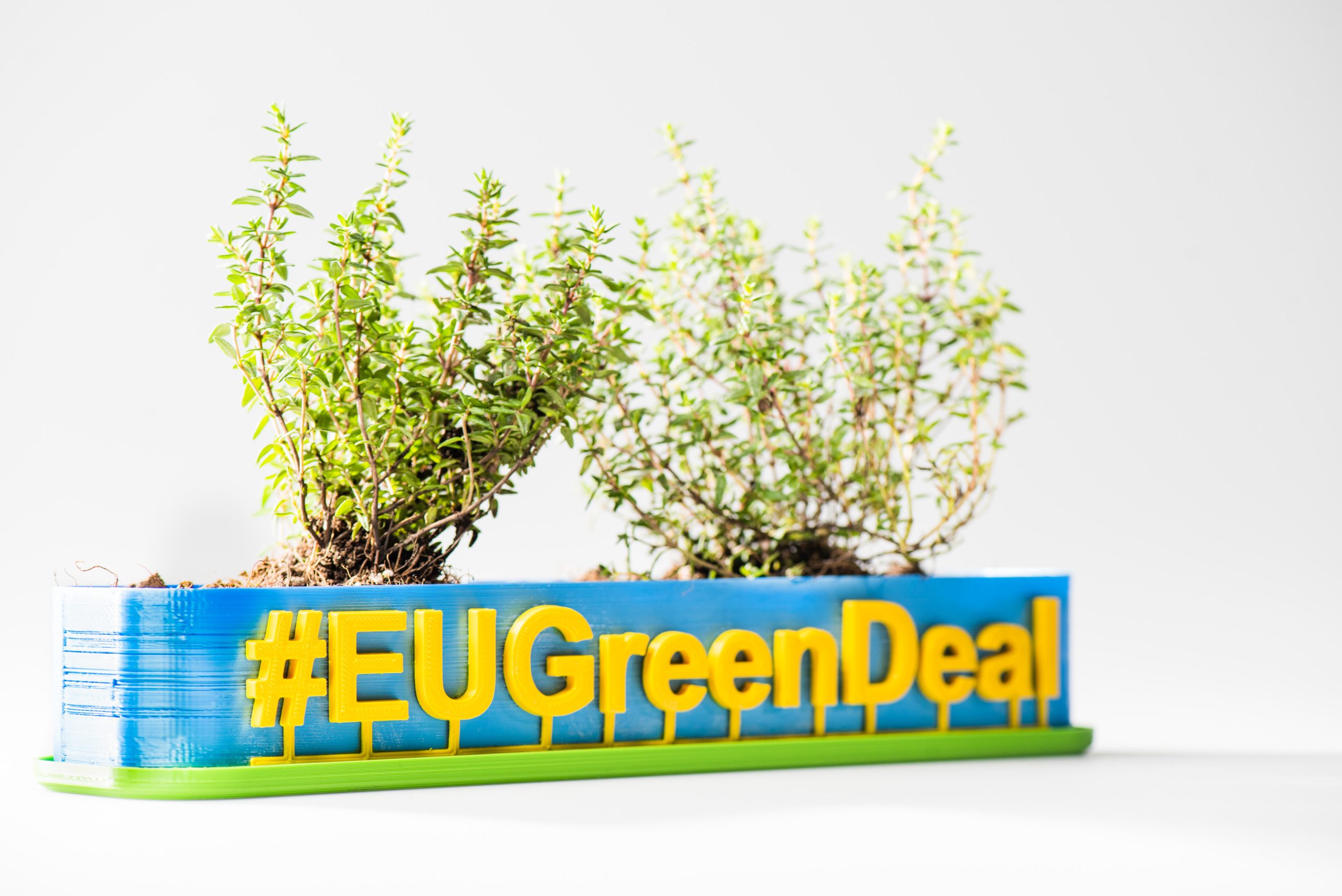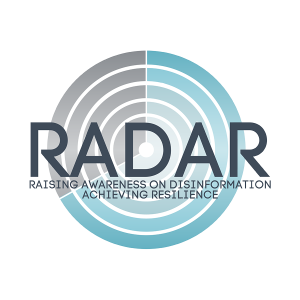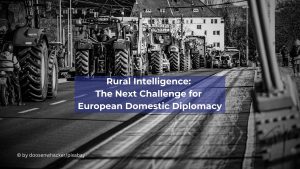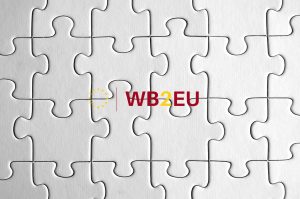Policy Recommendations
- To reach desired objectives, the European Union should more closely involve and consult environmental civil society organisations from the Western Balkans and the local population, on all matters related to the Green Agenda, which includes timely and transparent sharing of information in line with the Aarhus Convention.
- The European Union should extend the Green Agenda Action Plan to delineate clear responsibilities of all relevant actors in the region, set clear time-frames and targets as well as precise rights and responsibilities of civil society organisations in the consultation process.
- It should impose stricter control over governmental action of the Western Balkans to reach the objectives of the Green Agenda and establish a sound monitoring system that will also include the civil society organisations and extend monitoring financing in line with coordinated and participatory bottom-up financing schemes.
Abstract
In October 2021 at the EU–Western Balkans Summit held during Slovenian presidency of the Council of the European Union (EU), the Green Agenda Action Plan was adopted, setting in motion the implementation of the ambitious environmental deal for the Western Balkans (WB). Extending the objectives of the European Green Deal (EGD) to the WB, the Action Plan provides nine billion euros in grant funding for the WB. This initiative is an important step for environmental protection in the region facing serious challenges related to air, water and soil pollution. The Action Plan was delivered by the Regional Cooperation Council after a 10-month drafting process. With the generous funding provided for its implementation, the plan can prompt a renewed momentum of the enlargement process and advance the EU’s credibility in the region. However, improper implementation process can seriously hinder the success of this initiative. Environmental civil society organisations from the WB play a crucial role in safeguarding local communities from harmful practices and weak environmental protection measures. They are actively involved in processes related to environmental justice and offer important know-how and expertise, which proves to be instrumental in crafting a comprehensive and robust Green Agenda for the WB. With much to address, the Green Agenda Action Plan should consider a more serious dedication to the bottom-up approach, with regular consulting from environmental civil society organisations and the public, particularly those most vulnerable from the effects of environmental degradation. The war in Ukraine and consequences of the energy crisis make these matters as relevant as ever, and EU must provide a strong and comprehensive support for the WB states in their journey towards energy transition and sustainable development, while ensuring stability in the region in face of the current crisis.
****************************
Listening to the people: How the Green Agenda Action Plan can do better for the Western Balkans
Introduction
The European Green Deal (EGD) was announced on 11 December 2019, as an ambitious roadmap for making the European Union (EU) economy sustainable and resource efficient. The chief goal behind the EGD is achieving zero net emissions of greenhouse gases (GHG) by 2050.[1] Making Europe a climate neutral continent cannot be possible without a full transition towards circularity and without EU’s immediate neighbourhood also taking the effective action. Environmental action has been an important element in the EU’s policies for the Western Balkans (WB), often being put forward as independent topic not related to the enlargement perspective.[2]
During the WB Sofia Summit in November 2020, the Green Agenda for the WB was adopted, aligning the region with the EGD. Most recently, at the EU–WB Summit held in Slovenia in October 2021, during its Presidency of the Council of the EU, agreement was reached on the Green Agenda Action Plan. The document was prepared by the Regional Cooperation Council (RCC) and opens the way for the nine billion euros in grant funding and 20 billion euro in investments from the Economic and Investment Plan for the region, covering the period from 2021 to 2030. With it, the WB countries took on the task of reaching sustainable development, and centring nature protection, resource efficiency and climate action in all economic activities whilst aligning with general EU objectives.[3]
Inadequate industrial technology and crude environmental management have resulted in poor soil, water and air quality.
Pollution is one of the most acute issues in the WB. Inadequate industrial technology and crude environmental management have resulted in poor soil, water and air quality.[4] In particular, air pollution is in critical state in all countries in the region, responsible for one in five premature deaths in urban areas.[5] These issues are intensified by the WB’s socio-economic context. Low-income families are forced to rely on wood, coal or waste for heating and government funding for appropriate sewage, waste and energy systems and infrastructure are scarce.[6] Rivers are regularly clogged by floating landfilled waste, which is washed away from illegal dump sites around the river banks.
With specific dedication to the issue and their know-how, environmental civil society organisations are integral in crafting appropriate legislation and ensuring just implementation.
Management of these issues is weakened by corruption, slow legislation enforcement and failure to monitor and track activities related to environment. It then comes as no surprise, that the bulk of the work aimed at fixing and improving the current situation has been carried out by environmental civil society organisations (ECSOs) and local communities. With specific dedication to the issue and their know-how, ECSOs are integral in crafting appropriate legislation and ensuring just implementation. They have been instrumental in raising awareness and monitoring the state of environment, while also being important bridge between the EU and local and national WB governments. The Green Agenda should reflect this and operationalise the help offered by ECSOs. This is necessary for the overall success of the Green Agenda, as a flawed Action Plan may limit progress and hinder its success.[7]
The Green Agenda should reflect this and operationalise the help offered by environmental civil society organisations.
In what follows, the Policy Brief explores the potential of the Green Agenda for the WB, looking at the role of ECSOs in the drafting process and assessing the success of the consultation process. The aim is to question how appropriate the proposed action is, considering the current standing of the WB vis-à-vis environment and by taking into account recommendations from the civil society. We conclude with proposals for establishing sufficient environmental action and remaining responsible to the broader stability in the region.
The logic behind the Green Agenda & notes from the civil society
The Green Agenda for the WB envisions action around five pillars, covered in the EGD: (1) climate action, including decarbonisation, energy and mobility, (2) circular economy (CE), addressing in particular waste, recycling, sustainable production and efficient use of resources, (3) biodiversity, aiming to protect and restore the natural wealth of the region, (4) fighting pollution of air, water and soil and (5) sustainable food systems and rural areas.[8] ECSOs have welcomed the advancement of the Green Agenda for the WB while emphasising the importance of an adequate implementation process.[9]
Zitat: Environmental civil society organisations have been advocating for lower emissions and phasing out facilities which are the biggest emitters of air pollution, with little avail from the policy makers.
Decarbonisation is one of the chief goals here, as all WB countries but Albania, heavily rely on coal, making the region responsible for more coal emissions than the entire EU.[10] ECSOs have made proposals for provisions on sustainable decarbonisation and CE[11], calling on for equal consideration to various social, climate and biodiversity impacts of the process as well as pushing for the legal climate commitment of all WB governments and robust monitoring and sanction mechanisms[12]. Likewise, ECSOs have been advocating for lower emissions and phasing out facilities which are the biggest emitters of air pollution, with little avail from the policy makers.[13]
This advocacy includes a push for inclusion of household energy efficiency measures, electrification of public transport as well as broader compliance with the Energy Community Treaty in the Green Agenda.[14] When it comes to agriculture, which has always been a cornerstone of WB economic activities and communities’ livelihoods[15], there is a significant lack of political commitments for improving the implementation of biodiversity policies and the influence of economic activities on it. ECSOs have urged for the strict enforcement of obligatory rules and standards whilst making more tailor-made programmes for farmers and agriculture workers and supporting research of high-biodiversity areas and their effective protection.[16]
All five pillars of the Green Agenda call for precise and integrated action, which is why its financing must reflect a clear and prioritised spending plan. Importantly, environmental issues are not a consequence of the lack of funds, but rather apparent poor organisation and management strategies employed by the WB governments. This is something which ECSOs have brought attention to and why they advocated for the creation of coordinated financing and monitoring schemes, with just transition funds which would be running bottom-up, based on participatory and transparent local development plans.[17] In many ways, creating a Green Agenda without hearing out these requests – without creating a supervising governance mechanism, simply means setting it up for failure.
All five pillars of the Green Agenda call for precise and integrated action, which is why its financing must reflect a clear and prioritised spending plan.
The road from Sofia to Brdo pri Kranju
Delivering the Green Agenda
The above explained concerns and recommendations put forward by ECSOs were relayed to the European Commission (EC) months before the Sofia Summit, on top of the continuous action and cooperation of these groups with the local and national authorities in the WB region and the EU. After the Green Agenda was adopted, ECSOs criticised the lack of public participation during its design. According to them, the consultation process was neither inclusive nor transparent, and many relevant environmental NGOs from the region were not informed or consulted. The general public was also mostly unaware of the existence of the agenda, and from those NGOs that had the opportunity to participate, only few of their proposals have been taken into consideration.[18]
While environmental civil society organisations showed willingness to cooperate from the beginning and offered their expertise, most of their proposals were not included in the Green Agenda, at least not with the assertiveness required.
Moreover, while the agenda proposed many good ideas, it seriously lacked proper enforcement mechanisms, not considering lessons given by ECSOs.[19] Once again, they have stressed the lack of focus on the legal enforcement of the Green Agenda hindering its integrity. Also, with no proper monitoring mechanisms, concerns were also raised about short-term economic investments prevailing over the long-term sustainability.[20] While ECSOs showed willingness to cooperate from the beginning and offered their expertise, most of their proposals were not included in the Green Agenda, at least not with the assertiveness required. At this point, the Action Plan had the opportunity to address previously unanswered concerns and provide a more robust system for ensuring enforcement of the agenda.
The Action Plan ambiguity affair
RCC had about a year after the Sofia Summit to prepare the plan. Still, the Action Plan’s first draft was delivered only two weeks prior to the summit in Slovenia – leaving minimal time for any amendments.[21] Dialogue was held on different levels, with little convergence between them. This further excluded ECSOs from achieving meaningful participation. In general, this highlights the lack of political will for meticulously crafting the measures.
It remains unclear whether and how the EU will sanction WB countries in case of failure to implement the plan.
Indeed, the quality of the Action Plan was hindered by the rush of its drafting. The hefty list of 58–measures is marked by ambiguity and unclear provisions, which can eventually serve as an excuse for the lack of progress. For instance, the Action Plan states that it is ‘defining an indicative timeframe for each implementable measure’.[22] Such phrasing is simply not effective, especially not for WB countries already lagging behind deadlines. Moreover, it remains unclear whether and how the EU will sanction WB countries in case of failure to implement the plan.
The Action Plan relies on WB countries to conduct assessments of the progress in each of the measures. With this, the Action Plan also remains obscure in setting up bodies responsible for handling and overseeing the implementation process as the enforcement of the agenda is left up to national governments through their legislation. Here in particular, we see how ECSOs concerns were not reflected in the design of the Action Plan, nor were their calls for stricter monitoring and implementation mechanisms listened to.
Civil society left cold
All of this points to the failure of the RCC to properly involve ECSOs in the drafting process and expand on their recommendations and concerns. This becomes especially problematic if taken against the claims that the Action Plan preparation came as a result of an ‘extensive consultation process’, developed in ‘a bottom-up approach’.[23] Even more, the Action Plan includes provisions on multi-stakeholder approach as well as cross-sectoral collaboration. However, ECSOs have been very vocal and critical in this regard, particularly towards the RCC, calling for this part of the plan to be amended, as no such activities have occurred.
ECSOs have expressed their frustration, as for 10 months they received no information on the Action Plan, only to be given a week to comment on the draft. They have shown particular concern over the fact that the plan offers no clear delineation between responsibilities of different actors, nor is it clearly disclosed how the civil society is to be consulted regarding the implementation on the national level.[24] Without this, there is a risk of having the contents of the Action Plan dealt with in the ‘pick and choose’ manner, with the WB national and local governments shifting the obligations among themselves on the basis of convenience and not a structured strategy. Moreover, with already alienated civil society in the region, if their role is not carefully cemented in the Action Plan, they can easily be supressed by other actors. Finally, from the experience it is easily deducible that without precise and clear timelines, especially those that are legally binding, little to no progress can be made.
Environmental civil society organisations have expressed their frustration, as for 10 months they received no information on the Action Plan, only to be given a week to comment on the draft.
Hence, in reality a bottom-up approach was not achieved and RCC made no effort to properly involve the ECSOs in the creation of the plan. Many of the issues in the Action Plan, raised above, could have been prevented with a proper consultation process, while the overall capacity of the RCC in leading the process is questioned due to such shortcomings.
What can be done to improve the trajectory of the Action Plan
The Green Agenda can greatly improve environmental protection in the WB, but rushed and ambiguous measures seriously limit its success. In order to ensure an integrated and reliable implementation of the Green Agenda, current shortcomings of the Action Plan need to be addressed. Russian invasion on Ukraine makes these issues that much more pressing, as Russia continues to use the WB to oppose and counter Western gas diversification attempts while further destabilising the region.[25] Moreover, due to the implications of the energy crisis, WB states are turning back to the coal, at least temporarily. North Macedonia, Bosnia and Herzegovina and Kosovo have already announced their plans to postpone phasing out coal-fired power plants over the next few years while Serbia plans on increasing its coal production.[26] This raises fears among ECSOs, that WB states are trying to retract on their commitments regarding energy transition. While the consequences of war in Ukraine are extensive and bring about serious threats to EU and international security, it is critical for the EU to offer comprehensive support to the WB, particularly through appropriate implementation of the Green Agenda, as to increase gas diversification and develop a more robust renewable energy sector. The EGD and with it the Green Agenda are instrumental in confronting some of the ramifications of the war in Ukraine, and WB’s commitments to the agenda cannot be renounced. Rather, the processes of its implementation should be accelerated and the role of ECSOs further solidified.
Due to the implications of the energy crisis, WB states are turning back to the coal, at least temporarily.
ECSOs and wider public have to be involved and consulted in all phases of the implementation of the agenda. This needs to include an active engagement with the local population, and timely and transparent sharing of information in line with the Aarhus Convention.
To properly respond to the raised concerns of the ECSOs, the EC should make the responsibilities of all actors clearly delineated and define precise steps to be taken over different phases, while determining explicit and clear timeframes and targets. This also means setting up precise responsibilities and rights of the ECSOs in the consultations on the implementation process.
As the region deals with overarching structural issues in the realm of environment protection, the RCC and the EC must impose stricter control over the WB governments and establish a sound monitoring system that will also improve access and reliability of data. It is vital to include ECSOs in the monitoring process and extend monitoring financing, in line with coordinated and participatory bottom-up financing schemes.
Local and regional environmental civil society organisations offer important insights and direct knowledge of the situation, they are the link between communities and decision-makers.
Communities in the WB are hit hard by the impact of pollution and environmental degradation. From waste floating in rivers to unbearably poor air quality – people are bearing the costs of how their governments are (mis)managing and responding to environmental concerns. These issues are further exacerbated with the current energy crisis. Local and regional ECSOs offer important insights and direct knowledge of the situation, they are the link between communities and decision-makers. Because of this, they must be taken seriously in the implementation of the document with such a scope. If the EU wants to remain true to its values and protect the people of WB from environmental degradation and energy crisis, properly implementing the Green Agenda is instrumental. Regardless of the dynamic of decarbonisation to be taken, each WB state should aim to implement these policies and measures for inclusive and just transition, taking into consideration goals of decentralization and democratization of energy sector.
****************************
Photo: #EUGreenDeal
Photographer: Jennifer Jacquemart
©: European Union, 2020
Source: EC – Audiovisual Service
****************************



[1] European Commission. (2022). A European Green Deal. Available at https://ec.europa.eu/info/strategy/priorities-2019-2024/european-green-deal_en.
[2] The Balkan Forum. (2021). Circular Economy in the Western Balkans Region: Waste Management as a Challenge. (p.4). Available at https://thebalkanforum.org/file/repository/Circular_Economy_in_the_Western_Balkans_region.pdf.
[3] Todorović, I. (2021). Adopted Green Agenda Action Plan for Western Balkans brings EUR 9 billion in grants, 2024 deadline to align with EU ETS. Available at https://balkangreenenergynews.com/adopted-green-agenda-action-plan-for-western-balkans-brings-eur-9-billion-in-grants-2024-deadline-to-align-with-eu-ets/.
[4] Russo, J. (2019). Pollution in the Western Balkans and the International Response. The Borgen Project. Available at https://borgenproject.org/pollution-in-the-western-balkans-and-the-international-response/.
[5] UNEP. (2019). Air pollution is responsible for up to one in five premature deaths in 19 Western Balkan cities. Available at https://www.unep.org/news-and-stories/press-release/air-pollution-responsible-one-five-premature-deaths-19-western.
[6] Hofhuis, P., Cretti, G., Popović, M., Vojvodić, H. and Zweers, W. (2021). The Green Agenda: Providing breathing space for Western Balkans citizens? Netherlands Institute of International Relations. Available at https://www.clingendael.org/publication/green-agenda-providing-breathing-space-western-balkans.
[7] Petritsch, W., Freund, P. (2021). The European ‘Green Deal’ for the Western Balkans. Available at https://www.lansky.at/en/newsroom-en/news-media/info-magazine-lgp-news-022021/the-european-green-deal-for-the-western-balkans/.
[8] European Commission. (2020). Guidelines for the Implementation of the Green Agenda for the Western Balkans. Available at https://ec.europa.eu/neighbourhood-enlargement/system/files/2020-10/green_agenda_for_the_western_balkans_en.pdf.
[9] Joint civil society statement in the wake of the Sofia Summit. (2020). Make the Green Agenda for the Western Balkans drive the transition to a sustainable, carbon-neutral wellbeing economy that works for people. Available at https://www.co-plan.org/wp-content/uploads/2020/11/Green-Agenda-Summit-Civil-Society-Statement-09Nov2020-1.pdf.
[10] Carragher, A. (2021). The EU’s Green Agenda for the Western Balkans packs a risky geopolitical agenda. Carnegie Europe. Available at https://carnegieeurope.eu/strategiceurope/84879.
[11] Maleš, I. (2020) Guidelines on circular economy for the countries of the Western Balkans and Turkey. (pp. 5–7). Available at http://env-net.org/wp-content/uploads/2020/12/guideline-WBT_INCIEN_final.pdf.
[12] Joint civil society statement in the wake of the Sofia Summit. (2020). Make the Green Agenda for the Western Balkans drive the transition to a sustainable, carbon-neutral wellbeing economy that works for people. Available at https://www.co-plan.org/wp-content/uploads/2020/11/Green-Agenda-Summit-Civil-Society-Statement-09Nov2020-1.pdf.
[13] The World Bank. (2021). Going Green Means Cleaner Air, Healthier Living in the Western Balkans. Available at https://www.worldbank.org/en/news/feature/2021/05/17/going-green-means-cleaner-air-healthier-living-in-the-western-balkans.
[14] Joint civil society statement in the wake of the Sofia Summit. (2020). Make the Green Agenda for the Western Balkans drive the transition to a sustainable, carbon-neutral wellbeing economy that works for people. Available at https://www.co-plan.org/wp-content/uploads/2020/11/Green-Agenda-Summit-Civil-Society-Statement-09Nov2020-1.pdf.
[15] Znaor, D. (2013). Sustainable Agriculture as a Path to Prosperity for the Western Balkans. Green European Journal. Available at https://www.greeneuropeanjournal.eu/sustainable-agriculture-as-a-path-to-prosperity-for-the-western-balkans/.
[16] Joint civil society statement in the wake of the Sofia Summit. (2020). Make the Green Agenda for the Western Balkans drive the transition to a sustainable, carbon-neutral wellbeing economy that works for people. Available at https://www.co-plan.org/wp-content/uploads/2020/11/Green-Agenda-Summit-Civil-Society-Statement-09Nov2020-1.pdf.
[17] Joint civil society statement in the wake of the Sofia Summit. (2020). Make the Green Agenda for the Western Balkans drive the transition to a sustainable, carbon-neutral wellbeing economy that works for people. Available at https://www.co-plan.org/wp-content/uploads/2020/11/Green-Agenda-Summit-Civil-Society-Statement-09Nov2020-1.pdf.
[18] Joint civil society statement in the wake of the Sofia Summit. (2020). Make the Green Agenda for the Western Balkans drive the transition to a sustainable, carbon-neutral wellbeing economy that works for people. Available at https://www.co-plan.org/wp-content/uploads/2020/11/Green-Agenda-Summit-Civil-Society-Statement-09Nov2020-1.pdf.
[19] Gallop, P. (2020). A Green Agenda for the Western Balkans: Where are the teeth? CEE Bankwatch Network. Available at https://bankwatch.org/blog/a-green-agenda-for-the-western-balkans-where-are-the-teeth.
[20] Joint civil society statement in the wake of the Sofia Summit. (2020). Make the Green Agenda for the Western Balkans drive the transition to a sustainable, carbon-neutral wellbeing economy that works for people. Available at https://www.co-plan.org/wp-content/uploads/2020/11/Green-Agenda-Summit-Civil-Society-Statement-09Nov2020-1.pdf.
[21] Gallop, P. (2021). The Western Balkans Green Agenda Action Plan: Quantity over quality. Bankwatch network site. Available at https://bankwatch.org/blog/the-western-balkans-green-agenda-action-plan-quantity-over-quality.
[22] RCC. (2021). Action Plan for the Implementation of the Sofia Declaration on the Green Agenda for the Western Balkans 2021-2030. (p.3). Available at https://www.rcc.int/docs/596/action-plan-for-the-implementation-of-the-sofia-declaration-on-the-green-agenda-for-the-western-balkans-2021-2030.
[23] RCC. (2021). Action Plan for the Implementation of the Sofia Declaration on the Green Agenda for the Western Balkans 2021-2030. (p.3). Available at https://www.rcc.int/docs/596/action-plan-for-the-implementation-of-the-sofia-declaration-on-the-green-agenda-for-the-western-balkans-2021-2030.
[24] NGO letter. (2021). For attention of the Regional Cooperation Council (RCC) and the European Commission on The Draft Action Plan for the Implementation of the Sofia Declaration. Available at https://bankwatch.org/wp-content/uploads/2021/10/NGO-letter-on-the-draft-action-plan-for-the-implementation-of-the-Sofia-Declaration-.pdf.
[25] Ichord, Jr, R.F. (2022). The war in Ukraine and gas in the Western Balkans. Energy Source. Atlantic Council. Available at https://www.atlanticcouncil.org/blogs/energysource/the-war-in-ukraine-and-gas-in-the-western-balkans/.
[26] Çakir, B. (2022). The impact of the energy crisis on the EU and the Balkans. Ankara centre for crisis and policy studies. Available at https://www.ankasam.org/the-impact-of-the-energy-crisis-on-the-eu-and-the-balkans/?lang=en.
About the article
ISSN 2305-2635
The views expressed in this publication are those of the author and not necessarily those of the Austrian Society of European Politics or the organisation for which the author is working.
Keywords
Green Agenda for the Western Balkans, Green Agenda Action Plan, European Green Deal, environmental civil society organisations, implementation process, bottom-up approach, monitoring systems
Citation
Mahmutović, M. (2022). Listening to the people: How the Green Agenda Action Plan can do better for the Western Balkans. Vienna. ÖGfE Policy Brief, 20’2022







